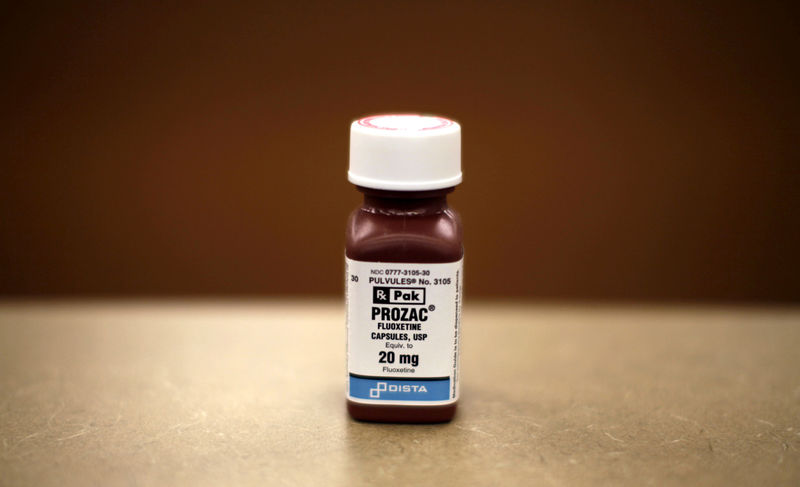This post was originally published on this site
https://i-invdn-com.investing.com/trkd-images/LYNXMPEJ6G0HN_L.jpg
(Reuters) – Eli Lilly (NYSE:LLY)’s experimental drug donanemab slowed the progression of Alzheimer’s by 60% for patients in the earliest stages of the brain-wasting disease, the Alzheimer’s Association said in a press release on Monday.
For those patients, the drug slowed cognitive decline by nearly twice the rate Lilly reported in May for the trial’s overall treatment group.
Lilly’s drug, Donanemab, like Eisai and Biogen (NASDAQ:BIIB)’s recently approved Leqembi, is an intravenous antibody designed to remove deposits of a protein called beta amyloid from the brains of Alzheimer’s patients.
The Alzheimer’s Association said donanemab’s treatment effect continued to increase relative to placebo over the course of the 18-month trial.
Lilly said in May that the study had met all of its goals, showing that donanemab slowed cognitive decline by 29% compared to a placebo in 1,182 people with mild cognitive impairment or mild dementia whose brains had deposits of two key Alzheimer’s proteins, beta amyloid and tau.
The full study results are being presented at the Alzheimer’s Association International Conference in Amsterdam and published in JAMA on Monday.
The FDA this month granted standard approval to Leqembi, the first Alzheimer’s disease modifying treatment to achieve that goal, clearing the way for wider insurance coverage of the drug.
Both medications are also being studied in large trials to see if they have an impact on delaying onset of Alzheimer’s disease symptoms.
More than 6 million Americans are living with Alzheimer’s, and that number is projected to rise to nearly 13 million by 2050, according to the Alzheimer’s Association.

